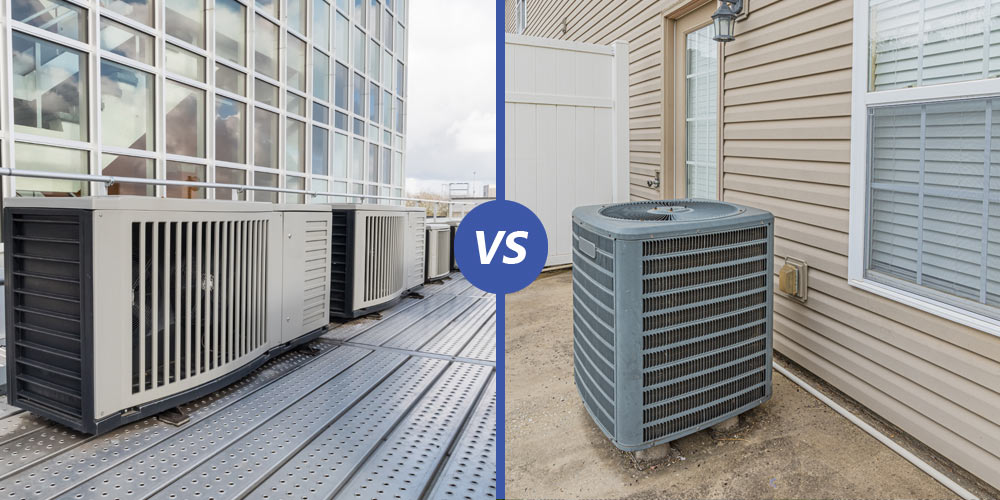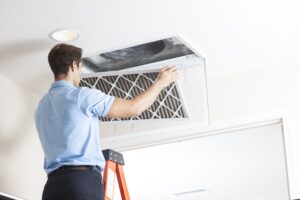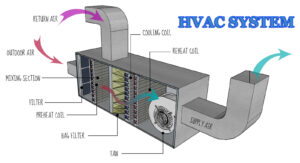There are two main categories of HVAC systems- the residential and the commercial type. While both are designed to keep the air within a building at a comfortable temperature, the techniques and components used by the two are very different. This is due to the vast differences in how the desire for comfort is met in a house and a business. But what is the difference between the two systems?
Where To Use Residential and Commercial HVAC Systems
A residential HVAC system provides for the heating and cooling of your home, while a commercial HVAC unit is meant for commercial spaces like restaurants, hospitals, corporations, etc.
Differences between the Residential HVAC system and the commercial type
The System’s Size
Size is always essential for an HVAC system. This is often expressed in terms of the square footage of space that will be heated or cooled. So far, commercial HVAC equipment is correspondingly larger due to the more extensive surface areas. Also, it requires more energy and power than residential ones since they must heat and cool larger areas.
The System’s Location
HVAC systems in residential properties are often installed in the rear or on the side of the building. However, it is common practice for HVAC systems in commercial buildings to be installed on the rooftop. Rooftop locations are preferred for commercial HVAC systems for several reasons, the most important of which are their size and the amount of noise they produce.
The System’s Complexity
The complexities of commercial HVAC systems and their many moving components are another significant distinction from a typical residential HVAC system. Because of their smaller size and independence, HVAC units in homes often consist of fewer parts. However, when it comes to heating and cooling a commercial building, the size and areas of the system’s duty necessitate the addition of extra components.
The Cost of Maintenance
The HVAC system in a building should be inspected at least once a year by a professional HVAC repair to ensure it is functioning correctly. As a result, you may expect to save money on energy bills, decrease energy waste, and lessen the likelihood of expensive HVAC system malfunctions. In addition, because of the many moving parts and subsystems that make up a commercial HVAC system, regular HVAC maintenance is crucial for any commercial building. Also, residential owners can prolong the life of their HVAC system and reduce the need for expensive repairs by performing routine maintenance once a year.
The kind of Drainage Necessary
Any HVAC system, whether residential or commercial, has to be installed outside where it can drain properly. So far, any HVAC system would be incomplete without proper drainage. However, a commercial HVAC system’s drainage system differs from a residential one’s. HVAC systems often include white PVC or copper pipes that carry water to a drain.
What is the best option for you? Is it a Commercial or Residential HVAC
A residential HVAC system is more than capable of meeting the requirements of private dwellings. On the other hand, a commercial HVAC system is recommended for business properties due to the bigger size and surface area that these buildings often require to serve. In any case, you can consult a professional HVAC service near you.
Need an HVAC expert in the Greater Seattle area? Trust Frost Heating and Cooling Expert
For any questions or assistance with your residential or commercial HVAC system, contact Frost HVAC Home Services. Call 206 778 2848 to request your next HVAC services, Air Conditioning and Heating, Repair, and Installation for your home in Federal Way, WA, and the surrounding areas.





Recent Comments